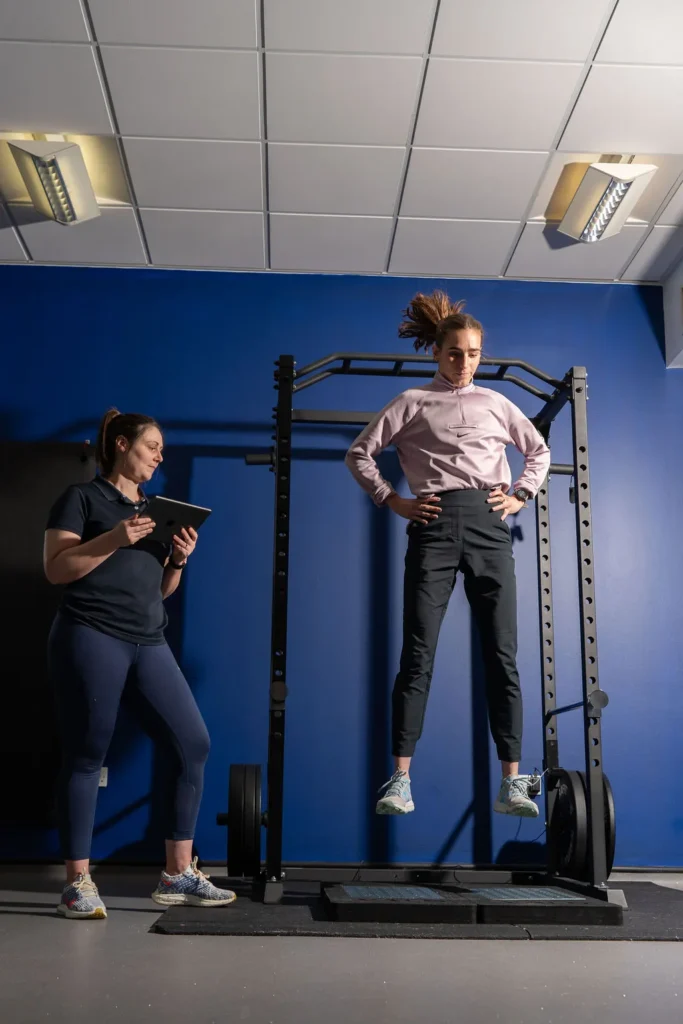In the world of strength sports and CrossFit, pushing your body to its limits is part of the game. The thrill of lifting heavier, moving faster, and achieving new personal bests drives athletes to constantly strive for improvement. However, this relentless pursuit often brings with it the risk of injuries and musculoskeletal issues. This is where musculoskeletal and sports physiotherapy becomes an invaluable ally in your fitness journey.
Understanding Strength Sports and CrossFit
Strength sports, such as powerlifting, weightlifting, and bodybuilding, focus on maximizing muscular strength and hypertrophy. CrossFit, on the other hand, combines elements of various sports, including weightlifting, gymnastics, and high-intensity interval training (HIIT), to build overall fitness. Both disciplines demand a high level of physical exertion and technical skill, making proper training and injury prevention essential.
The Role of Sarah, and SPEAR Musculoskeletal and Sports Physiotherapy
Musculoskeletal and sports physiotherapy specializes in the prevention, diagnosis, and treatment of injuries related to muscles, bones, and joints. For athletes in strength sports and CrossFit, physiotherapy offers numerous benefits:
- Injury Prevention:
- Movement Analysis: As a strength and CrossFit athlete, Sarah can assess your movement patterns to identify any biomechanical issues that could lead to injury. By correcting these patterns, she can help you perform exercises safely and efficiently.
- Strength and Flexibility Programs: Tailored programs to address muscle imbalances, improve flexibility, and enhance joint stability reduce the risk of injuries during training.
- Performance Enhancement:
- Optimized Training Plans: Physiotherapists work with you to develop training regimens that maximize performance while minimizing the risk of overuse injuries.
- Recovery Techniques: Techniques such as massage, dry needling, and electrotherapy promote quicker recovery, allowing you to train more effectively.
- Injury Rehabilitation:
- Personalized Rehabilitation Programs: If you do get injured, physiotherapists create customized rehabilitation plans to ensure a safe and effective return to training.
- Pain Management: Various therapies, including manual therapy and therapeutic exercises, help manage pain and restore function.
Common Injuries in Strength Sports and CrossFit
Understanding common injuries can help you appreciate the importance of physiotherapy. Some typical injuries include:
- Shoulder Injuries: Rotator cuff strains, impingement, and labral tears are common due to the heavy overhead lifting and dynamic movements in CrossFit.
- Lower Back Pain: Often caused by poor lifting techniques or excessive loading, lower back pain is prevalent among weightlifters and CrossFit athletes. Prevalent but avoidable and very treatable!
- Knee Injuries: Conditions like patellar tendinopathy and meniscal tears can result from repetitive squatting and jumping activities.
- Elbow and Wrist Injuries: Overuse injuries such as tennis elbow and wrist sprains are frequent in athletes performing high-repetition lifting and gymnastic movements. Having a look at what we’re training and how is key to not only diagnosing but then also treating these injuries as well.
Integrating Physiotherapy into Your Training
To fully benefit from musculoskeletal and sports physiotherapy, it’s important to integrate it into your regular training routine:
- Regular Assessments: Schedule periodic assessments with a physiotherapist to monitor your movement patterns and address any emerging issues before they become serious injuries. We love it when our patients bring us ‘niggles’ before they become proper injuries.
- Prehabilitation Exercises: Incorporate prehabilitation (injury ‘preventative’) exercises recommended by your physiotherapist into your warm-up routine to prepare your body for the demands of training.
- Active Recovery: Use recovery techniques specific for you, such as foam rolling, stretching, and physiotherapy sessions, to maintain muscle flexibility and joint mobility.
- Listen to Your Body: Pay attention to any signs of discomfort or pain and consult your physiotherapist promptly to prevent minor issues from escalating.
Conclusion
Strength sports and CrossFit are demanding disciplines that require a robust and resilient body. By incorporating musculoskeletal and sports physiotherapy into your training regimen, you can enhance your performance, prevent injuries, and ensure a long and successful athletic career. Whether you’re a seasoned competitor or a beginner, physiotherapy offers the tools and expertise to help you achieve your fitness goals safely and effectively.
Remember, the journey to peak performance is not just about pushing harder but also about training smarter. Embrace the support of physiotherapy and elevate your strength sports and CrossFit game to new heights. Your body will thank you for it.
Aberdeen is home to several top-notch CrossFit facilities that cater to athletes of all levels, from beginners to seasoned competitors. These gyms offer a variety of classes focused on strength training, conditioning, and high-intensity interval workouts, all designed to push you to your limits and improve overall fitness.
